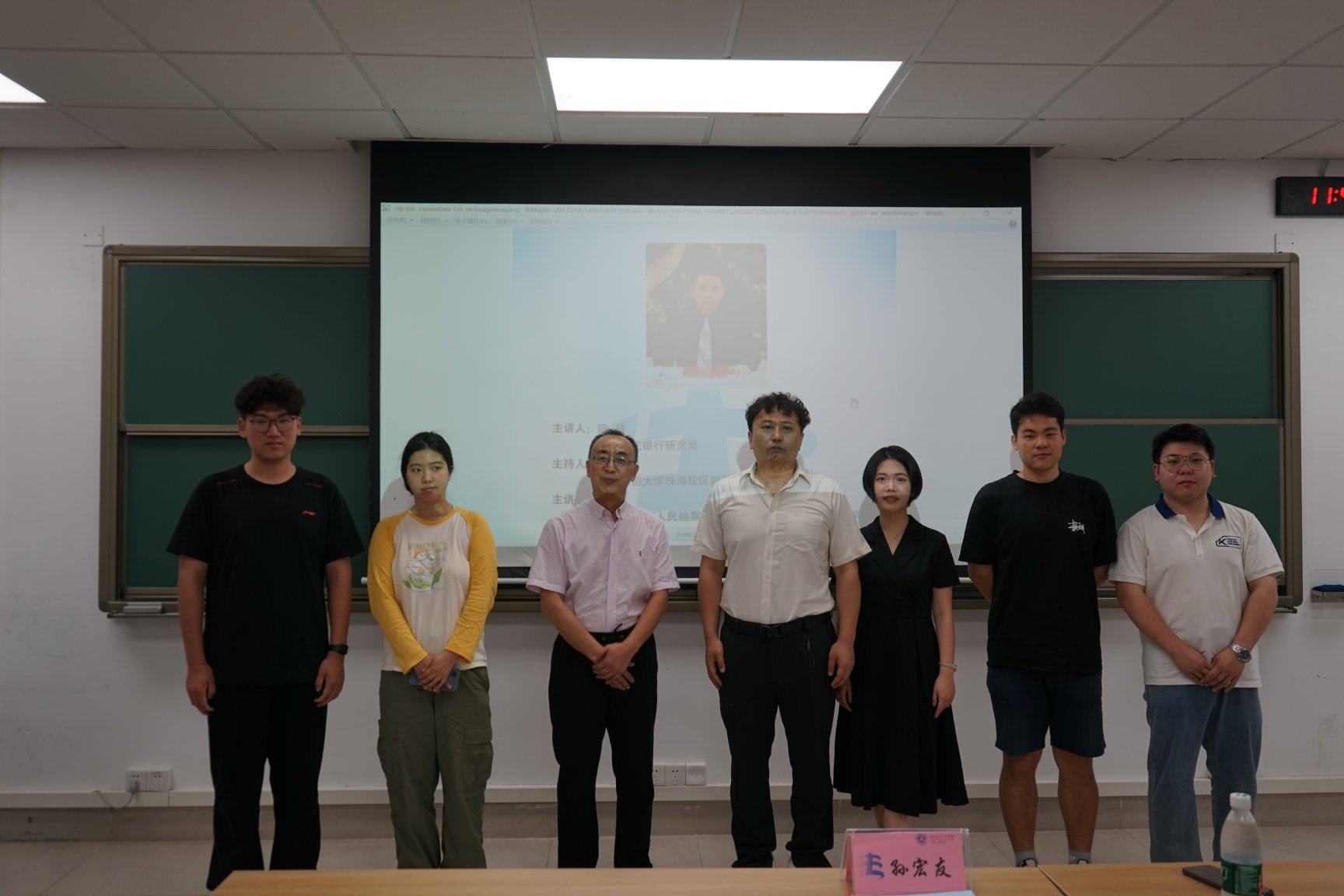
On April 19th, the 48th lecture of the BNU Zhuhai Legal Lecture Series, titled "Trends in the Development of International Law under International Sanctions," was successfully held in Room C405, Lijiao Building of Beijing Normal University at Zhuhai. The lecture was delivered by Chen Jie, a researcher of the People's Bank of China, and presided over by Associate Professor Sun Hongyou from Beijing Normal University at Zhuhai. A cohort of Master's students from Beijing Normal University at Zhuhai participated in the lecture.

At the outset of the lecture, Chen Jie delved into the current landscape of international sanctions and the challenges faced by domestic banks and corporations, using three compelling case studies. First, he cited the instance of a specific overseas branch of the Agricultural Bank of China falling under sanctions, emphasizing that contemporary international sanctions extend beyond just the "trade blacklist" to encompass the "financial blacklist" as well. Inclusion on the 'financial blacklist' effectively leads to a cessation of cooperation from nearly all financial entities, akin to being on a “death blacklist”. The second case highlighted an overseas branch of the Industrial and Commercial Bank of China being penalized for "money laundering," underscoring the substantial risks and costs that arise from the lack of uniformity in current compliance benchmarks for overseas operations. The final case discussed the sanctions imposed on an overseas branch of the Bank of China, through which Chen Jie elucidated the concept of plea bargaining in international litigation and the critical role of legal counsel.
Chen Jie posits that the global legal framework can be categorized into three principal systems: the Chinese legal system, the Islamic legal system, and the Roman legal system, with both the civil law system and the Anglo-American legal system being derivatives of the Roman legal system. Even in the UK and the US, where common law is prevalent, the codification of law is highly developed, and it is uncommon for judges to legislate from the bench. Case law, when it does emerge, is swiftly codified through legislative processes, making the study of international litigation accessible. In light of the Anti-Sanctions Law, Chen Jie advocates for domestic enterprises to proactively engage in litigation and defense, with the state's guidance, as a means to counteract sanctions effectively.
Furthermore, Chen Jie highlighted the richness of modern legal systems, urging students to delve deeper into the origins and evolution of each system. He noted that the pluralism of legal systems not only mirrors the diverse legal philosophies rooted in various cultural contexts but also fosters the advancement of cross-border legal practices. Identifying common threads among different legal systems while respecting their unique attributes is instrumental in constructing a more harmonious and inclusive international legal framework.
As the lecture drew to a close, Chen Jie engaged in a warm exchange with the students in attendance, addressing their queries on topics such as "the regulation of money laundering offenses." He also encouraged the students to approach their legal studies with dedication, to broaden their comprehension of international litigation and legal systems, and to equip themselves better for the intricate and dynamic legal landscape of today.
The lecture concluded successfully, met with the enthusiastic applause of the students.
